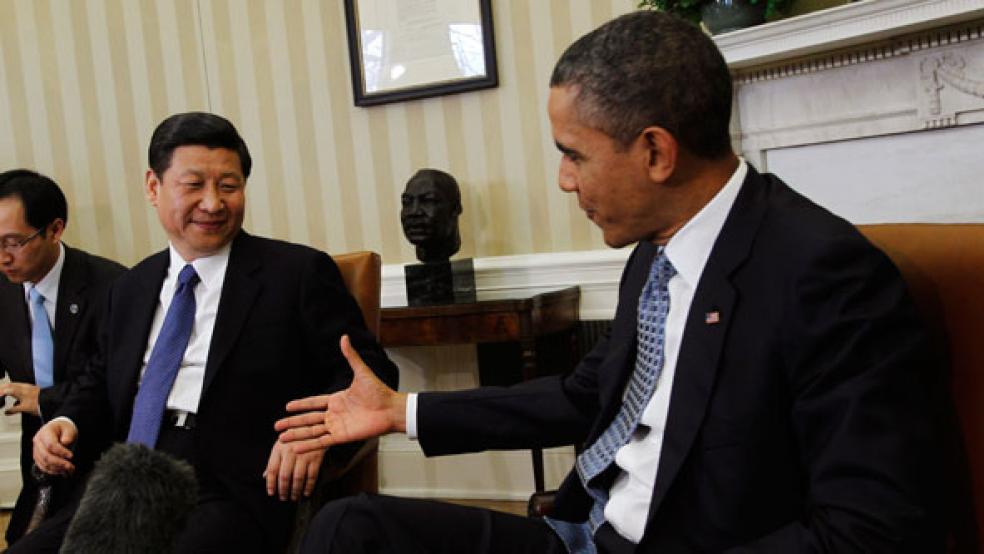Sen. Sherrod Brown (D-OH) has seized on the latest trade deficit figures to crack down on China for currency manipulation.
The timing is difficult for President Obama, who is meetings at the end of this week with China President Xi Jinping. Cyber security was already on the agenda. Now, Obama allies such as Democrats and labor unions have fresh reasons to complain about the value of the Chinese yuan.

The April trade deficit was $40.3 billion, an 8.5 percent jump from the March figures, the Commerce Department reported Tuesday.
The entire increase can be tied to China. Imports from that country, —which pegs the value of the yuan to the dollar instead of letting it float on the market, —surged by 21.2 percent. That led to a $24.1 billion deficit with China, a $6.2 billion increase from the previous month.
“As our trade deficit continues to widen, our need to level the playing field for American manufacturers and workers becomes more urgent,” Brown said in a statement. “Yet instead of taking action, we’re pursuing trade deals with countries that manipulate currencies. Congress won’t let these agreements move without finally imposing penalties on foreign nations that cheat trade laws by manipulating currency.”
The Senate passed Brown’s bill back in 2011, but it failed to reach the president’s desk. The measure sets new standards to investigate when a trading partner artificially depresses its currency to make its goods cheaper, in addition to mandating responses if the practice continues.
Of course, it may be a little late to go after China for currency manipulation. The yuan has crept up from its low points, while China is already completed its transformation into the world’s largest manufacturer.
The Treasury Department said in a semi-annual report released in April that the yuan is “significantly undervalued,” but it hasn’t labeled the Asian behemoth as a currency manipulator since 1994.
As China has grown to be the world’s second biggest economy after the United States, its salaries have also started to climb, making its products less competitive against American goods. Wages for urban Chinese workers grew by 12.5 percent last year, according to China’s National Bureau of Statistics.




